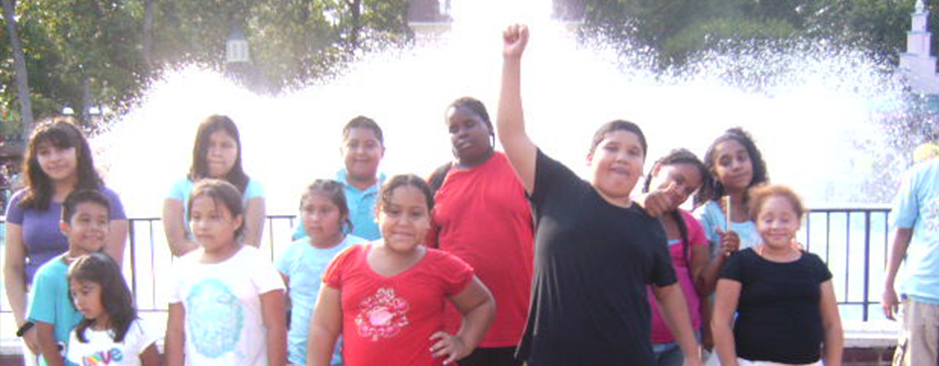The Problem
The United States is experiencing an obesity epidemic: 1 in 3 adults is obese, with nearly the same number being classified as overweight. Nearly 1 in 5 children are obese. Every year, thousands of children are newly diagnosed with Type 2 Diabetes as a result of this epidemic. Type 2 Diabetes was previously seen primarily in adults. Rates of other chronic illnesses, including those with the highest incidence of mortality and morbidity in the US (heart disease, cerebrovascular disease, and cancer), continue to rise exponentially.
This situation is worse in underserved communities. In our first target communities in East and Central Harlem, a recent report by the NYC Department of Health and Mental Hygiene found 4 in 10 children in Head Start programs and public elementary schools were overweight or obese. The root causes are complex and include biological, behavioral, psychosocial,and environmental factors. Sedentary lifestyles, high costs of healthy foods, lack of access to safe outdoor play areas are a few that exacerbate the epidemic in these communities. The prevalence of obesity and its associated chronic ailments is not only detrimental to the health of individuals and their communities, but also is a major driving factor in the rising cost of healthcare., There is an urgent need to address the root causes of these problems by improving health equity across the nation, which in turn will lead to improved health outcomes in our communities. With this in mind, we have developed our program to tackle these issues on a grassroots level.
Our Response
MAChO was born out of the need for students in the medical field to tackle this epidemic head on. The elevated risk of obesity, chronic diseases, and the health disparities within our target communities make programs such as MAChO a crucial element for reversing these trends. Our approach is to empower our youth with the knowledge and practical tools to take control of their health early in life as well as to begin to affect the health of their families and communities. We do this through the following channels.
After-School Program
Our after-school program works with students ages 8 to 13. In addition to teaching core concepts about the links between nutrition, fitness, anatomy and physiology, we also engage in exercises during each session and offer homework help to improve literacy and better adapt our lesson planning to our student participants.
Mentoring Program
Our mentoring program works with students ages 8 and up. We employ a multi-generational group mentoring model where our college and graduate student volunteers serve as mentors to high school students, who in turn serve as mentors to our middle and elementary school core group. Our teams work on group projects, participate in educational field trips, and use a variety of tools including self-reflection, arts and crafts, and public speaking to tackle personal development.
Family Engagement
Engaging the family in our discussions through workshops, a family-oriented curriculum that mirrors our youth curriculum, and focus groups that allow us to improve our family engagement strategies is a key component of our programming.
Community Engagement
We remain active within our target communities by taking part in health and community fairs, school assembly visits, and working with our community partners to promote the message of healthy living.
Tracking Impact
At MAChO we seek long-term health improvement through nutrition, fitness, and personal development designed to empower our participants to make healthier choices for themselves, their families, and their communities. We continually monitor and evaluate our progress using anthropometric measurements, knowledge, skills, and attitudes assessments and feedback.


